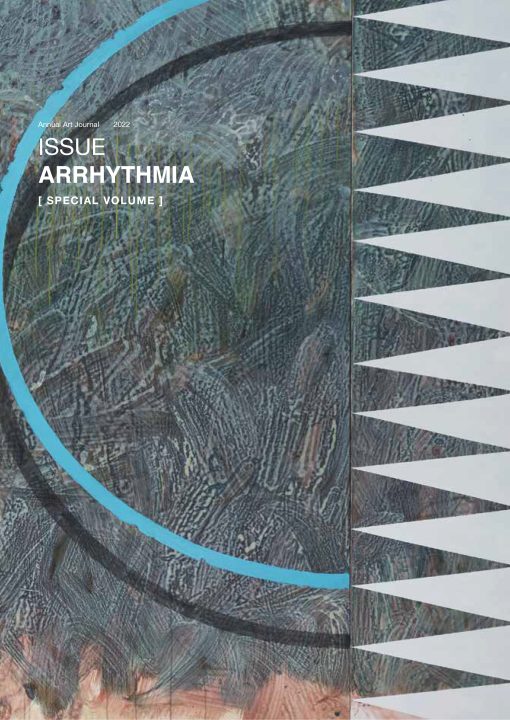This special volume of ISSUE features commissioned writings emerging out of the proceedings of the Arrhythmia: Performance Pedagogy and Practice conference held in June 2021. Arrhythmia refers to an irregular heartbeat. It is a medical condition symptomatic of severe heart disease, even indicative of a heart attack. Drawing inspiration from the medical implications of the term, the conference and its ensuing journal volume frames it as a metaphor for the disruption and havoc brought about by the COVID-19 pandemic. The rhythms of teaching and learning were disrupted ad libitum, without an end in sight in a rather convulsive manner. The conference and this volume aim to encapsulate this historical moment by gathering artists, performance makers, scholars, students, and researchers to share and reflect on our collective challenge. The articles in this volume express the profound and invigorating experiences of the conference. Arrhythmia was a clarion call to an emerging reality: we had become acutely aware of rhythm in its absence.
As editors, we wanted this volume of the journal to represent the foci of the conference. To draw out international perspectives, situate local practices, nurture emerging research and locate the impact of COVID-19 on performance pedagogies and practices. The contributors reflect a cross-section of the arts community—artists, scholars, social workers, teachers, and students who are both established and upcoming.
The volume is divided into essays, conversations and emerging research. The essays bring scholars’ and artistic practitioners’ theoretical and practical insights into the more significant pedagogical shifts brought about by the pandemic. The keynote conversations by world-leading artists Peter Sellars and Melati Suryodarmo are archived here to offer diverse perspectives around care, hope, and opportunity to the field of performance. Emerging research by both staff and students reflects on experiences of the pandemic within the institutional context. Finally, the editor of ISSUE, Venka Purushothaman, connects the ideas gathered by the contributors to the critical discussions on contagion and collaboration to remind us that what is really at stake is a rethinking of our presence in this world as the cornerstone of pedagogy.
The conference took place while Singapore was experiencing its first significant wave of COVID-19 infections, with numbers escalating quickly from tens to thousands of cases. Since then, and during the production of this special issue, we saw that wave recede only to experience the impact of a consecutive, more significant wave caused by the Omicron variant. The experience marks the transition to living with COVID-19 as an endemic disease. This transition has not been easy, but it demands re-evaluating and re-orientating everyday practices and modes of interaction. We must learn how to live with the virus and move on to co-habit this planet in some semblance of ecological harmony. Editing this issue has been an experience marked by that transition. We are very grateful for the opportunity to edit ISSUE’s first special volume, and in doing so, to contribute to the strengthening of the research culture in the Faculty of Performing Arts at LASALLE.


